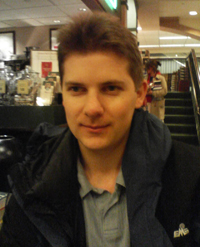Michael Vassar
KurzweilAI.net published the article Corporate Cornucopia: Examining the Special Implications of Commercial MNT Development that said
“The development of molecular nanotechnology (MNT) promises to lead rapidly to cheap superior replacements for a large majority of durable goods, a substantial fraction of all non-durable goods, all existing utilities, and some services. For this reason and due to the relatively low expected cost of developing nanofactories, MNT represents the largest commercial opportunity of all time. Unfortunately, the very size of the opportunity — combined with its extreme suddenness, military significance, potential for disruption of existing institutions, and ease of duplication — creates certain severe complications that lead to difficulties in capturing the value created.MNT also has the potential to impact the timeframes and severities of a number of major global risks such as those of terrorism, emergent disease, global warming, omnicidal (destructive of everything) war, and human extinction due to competition by either intelligent or unintelligent robotic competitors, for which reason there are important non-commercial motivations for preventing its unrestricted utilization. As a result of these difficulties and of the intrinsic uncertainty associated with any particular attempt to develop MNT, commercial development of MNT is likely to be much less rapid than would be predicted from a simple consideration of the value to be created, relevant time horizon, and risk adjusted discount rate.”
Michael Vassar was the author of this article and he lives in New York where he divides his time between management, analysis, research, and strategy for the music rights management company Sir Groovy and fundraising for the Singularity Institute, for whom he raised a $200,000 challenge grant in the summer of 2007. He has been a transhumanist since he read “How and Why: Genetics” at age 7.
Michael went to Penn State to study biochemistry at age 16 where he soon discovered organized transhumanism and molecular nanotechnology. He gradually assimilated the field's findings and changed the focus of his efforts to dealing with the possibility of nanotechnology in light of GAI theory. He worked in several bio-labs, then at NIST doing soft lithography. After the National Nanotechnology Initiative was stolen he started paying attention to understanding society and then studied economics and then business. He concluded that the Post WWI world has been, seen as an integrated collective intelligence, dying, and that important progress will have to come from small groups of individuals.
He is a member of the Center for Responsible Nanotechnology (CRN) Task Force and authored Corporate Cornucopia, Lifeboat's Nanoshield proposal (with Robert Frietas) Flexible Automated Manufacturing, Memes and Rational Decisions, Lead Me Not Into Temptation, and The Future of Suburban Life in America: Three 50-Year Scenarios for Futurist.com. He is worried about Unfriendly AI (UFAI) and supports the Friendly AI proposal by the Singularity Institute for Artificial Intelligence but is concerned about the realism of this approach.
Read his LinkedIn profile.
